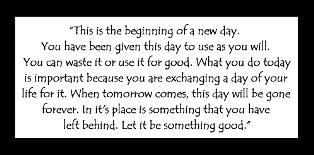 I am very happy for John Edwards this week. Why? Simply said, he's showing who he is by not taking anyone's crap in the political world.
I am very happy for John Edwards this week. Why? Simply said, he's showing who he is by not taking anyone's crap in the political world.Let me give you just a few examples:
1. He put potty mouth Ann Coulter in her [very low and deserved] place.
Andrew Sullivan - [Read the whole thing. I thought it was great commentary.]
Coulter's defense of the slur is that it was directed at an obviously straight man and so could not be a real slur. The premise of this argument is that the word faggot is only used to describe gay men and is only effective and derogatory when used against a gay man. But it isn't. In fact, in the schoolyard she cites, the primary targets of the f-word are straight boys or teens or men. The word "faggot" is used for two reasons: to identify and demonize a gay man; and to threaten a straight man with being reduced to the social pariah status of a gay man. Coulter chose the latter use of the slur, its most potent and common form. She knew why Edwards qualified. He's pretty, he has flowing locks, he's young-looking. He is exactly the kind of straight guy who is targeted as a "faggot" by his straight peers. This, Ms Coulter, is real social policing by speech. And that's what she was doing: trying to delegitimize and feminize a man by calling him a faggot. It happens every day. It's how insecure or bigoted straight men police their world to keep the homos out.

2. The Edwards campaign was given media attention because of Coulter's nastiness. Thanks, Coulter. I can't believe I'm saying it, but for once I appreciate your making a complete ass of yourself and all the Republican hypocrites who laugh at your ho-hum brand of everyday filth that only the smallest percentage of humans would find amusing.
Robert Scheer [Huffington Post] -
Thank you, Ann Coulter, for boosting the principled but media-neglected presidential candidacy of John Edwards.
Like many others, upon hearing that she had used an address at a major conservative convention to call Edwards a "faggot," I quickly clicked to his home page to see his campaign's reaction--and was happily diverted to more substantive stuff, such as his firm support of universal healthcare and an end to the war in Iraq.
No wonder Coulter hates him: Edwards is a Democrat who believes in the progressive heritage of his party and is not afraid to tell the world.
3. At Beliefnet.com and the Huffington Post, David Kuo interviewed Senator Edwards about his faith and how it effects his political views and actions. I found Sen. Edwards' replies to be honest and refreshing - not at all divisive or religiously triumphal.
...when I went away to college, I drifted away from my faith. Even after Elizabeth and I got married, I had drifted away. It isn't that we didn't exercise faith. We would go to church, but it was not the sort of dominant day-to-day living faith that it is for me today. And in 1996, on a day I'll never forget, my 16 year old son died. And the days after that, when I was trying to survive and Elizabeth's trying to survive, my faith came roaring back and has stayed with me since that time, and helped me deal with the personal challenges we've had. Not only the death of my son, but some of the politics and the difficulty of that on our family. Elizabeth's breast cancer. All the things that we've seen, which is not that unusual for families. [..]
[..] Does your concern for the poor come mostly from your own background, or does it come from your faith?
Edwards: Both. It comes from both.
My own personal experience has been that I came from a very poor background when I was young. But, by the time I was in middle school/high school, we were solidly in the middle class. And now I've had everything you could ever have financially in this country. And so, I feel some responsibility myself to help and give back, to give that opportunity to lots of people who I don't think have it today. That's part of it. And it also comes from my faith. If you took every reference to taking care of the least of these out of the Bible, there would be a pretty skinny Bible. And I think I as a Christian, and we as a nation, have a moral responsibility to do something about this. [..]
4. John Edwards told us that he wasn't interested in any opportunity to participate in a Democrats debate in Nevada to be chaired and aired on the Fox News network. I couldn't be happier for him and for all of us who know what Fox represents.
Confucius [as channelled through Iddybud] say -Fox, obviously out for blood, is sporting this headline - What Would Jesus Do With John Edwards' Mansion? - with a story by Brit Hume. It's funny. Hume (and Fox) regularly boast their own support for traditional American capitalist values, yet they feel compelled to mention that Edwards has "drawn fire from some for his new $6 million, 28,000 square-foot mansion in North Carolina." So compelled was Hume and Fox that they made a snarky headline out of it.
"For refusing to be toy of Fox
John Edwards he totally rocks."



 Speaking to a local news channel, Camillus Cutlery historian
Speaking to a local news channel, Camillus Cutlery historian 


























21.jpg)





.JPG)

